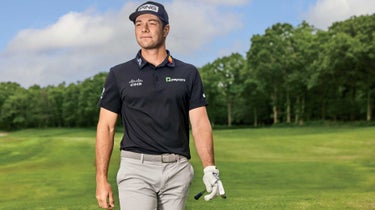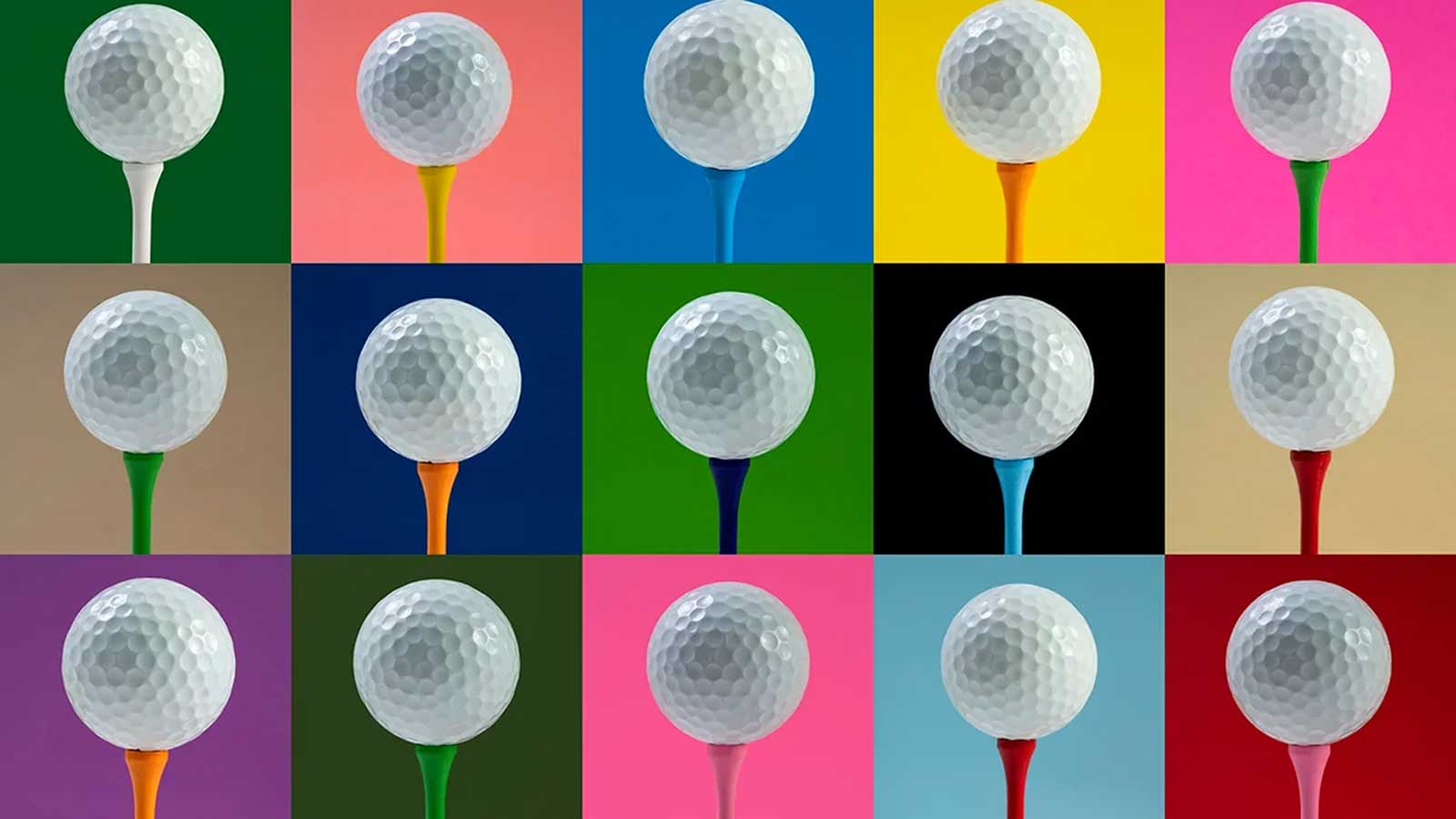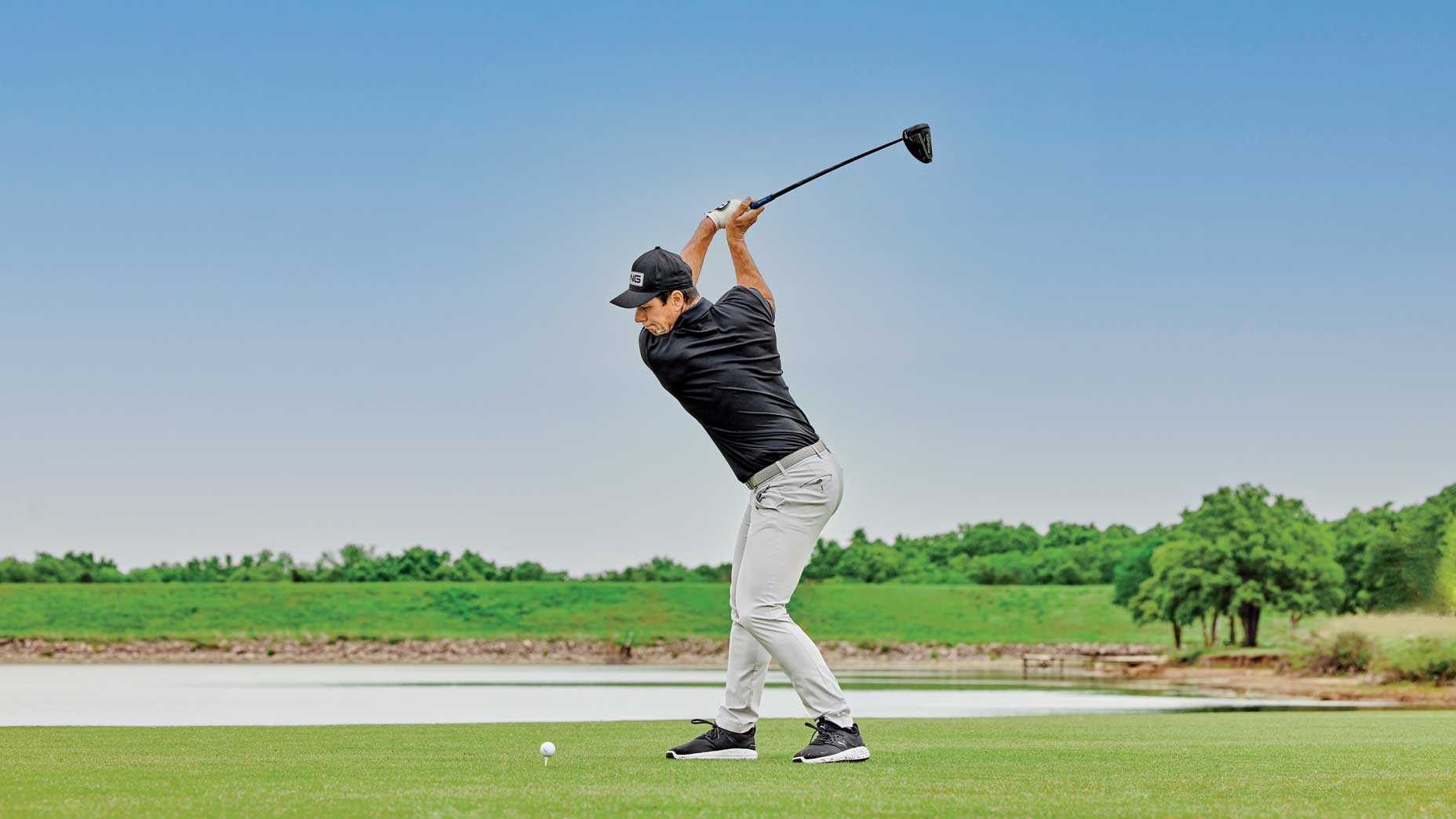
Viktor Hovland is one of the best drivers on the PGA Tour — and he’s an elite irons player, too. How does he do it? Here’s what he told us.
Christopher McEniry
In 2020, Viktor Hovland got known as a driver. He spent that first Covid summer solo road-tripping from tournament to tournament, logging some 5,000 miles.
But he became known for his driver too. Hovland has developed such a lethal mix of power and accuracy with the big stick that he’s No. 6 on Tour in Strokes Gained Off-the-Tee. Oh yeah, and he’s an elite irons player too.
So how does Hovland think about his move? Here’s what he told us as part of the cover story for this month’s issue of GOLF Magazine.
Viktor Hovland’s Swing Secrets
1. For Starters, I’m Curious
I’ve always been an extremely curious person. I don’t really understand why more people aren’t the same way because, as a pro golfer, I’m in charge of my own business. I’m the CEO of Viktor Hovland Golfing Enterprise. And that includes hiring people who help me with my golf swing. That includes being curious.
You can’t just willfully agree with whatever someone is telling you. You have to ask some questions and say, Hang on, is that right or is it not right? And if I’m wrong, well, I want to know how I’m wrong so I can avoid that mistake in the future.
2. I’m Focused on My Swing
I won’t really go looking for another player’s swing, but if it pops up, I’ll be like, Oh, that’s cool. I wonder why he does that. And then I’ll try to figure it out. But it’s not like I’m going to go down the list of people and try to understand it, because it probably doesn’t pertain to me that much — it’s just kind of interesting to see.
I guess I’ve always been a fan of Dustin Johnson’s golf swing, because I have a lot of similar things to him. The bowed left wrist. He hits cuts. He gets a lot of pull-up with his left arm and shoulder, which is something I’ve been focused on recently. He’s very rotary.
But it’s one of those things where if you try to model yourself to different people and you don’t understand fully what they’re doing and maybe you can’t do the same things as that person, then it can be a pointless journey.
3. I Harness One Shot
I don’t vary my ball flight much depending on the situation. I think harnessing one shot and becoming good at that is the smarter thing to do. There are some tricky tee shots out there, like at Augusta, where you might have a dogleg left and wind whipping left to right. Then, it’s tough with a cut. But that’s where your mind will play tricks on you and say, Okay, now I have to change my swing or do something to hit a draw for that one single situation when really the cut is working 95 percent of the time. Let’s just hit the cut on this hole and try to make it work.
I can hit a draw if I really have to; if the cut’s not possible, I’ll just point the face left, aim way right and exaggerate everything. But, in general, I stick to one shot. I still make some variations; sometimes I can try to launch it a little higher. If I have to cover a bunker or something, I’ll put a little extra air under it. But out here [at Karsten Creek], it’s very narrow, so I’ll launch it a little bit lower and keep it flying straighter. If my stock driver launches at 11 degrees or so, my bullet comes out at like eight, and I might lose 25 yards of carry.
But, if the fairways are firm, I’ll make up for that with roll. That’s the shot I hit recently at Hilton Head. And at Mayakoba, where I’ve won two times, that was basically all I hit. I’d grip down on the driver and still hit it, like, really hard, but just hit like a bullet cut on every single hole. That was fun.
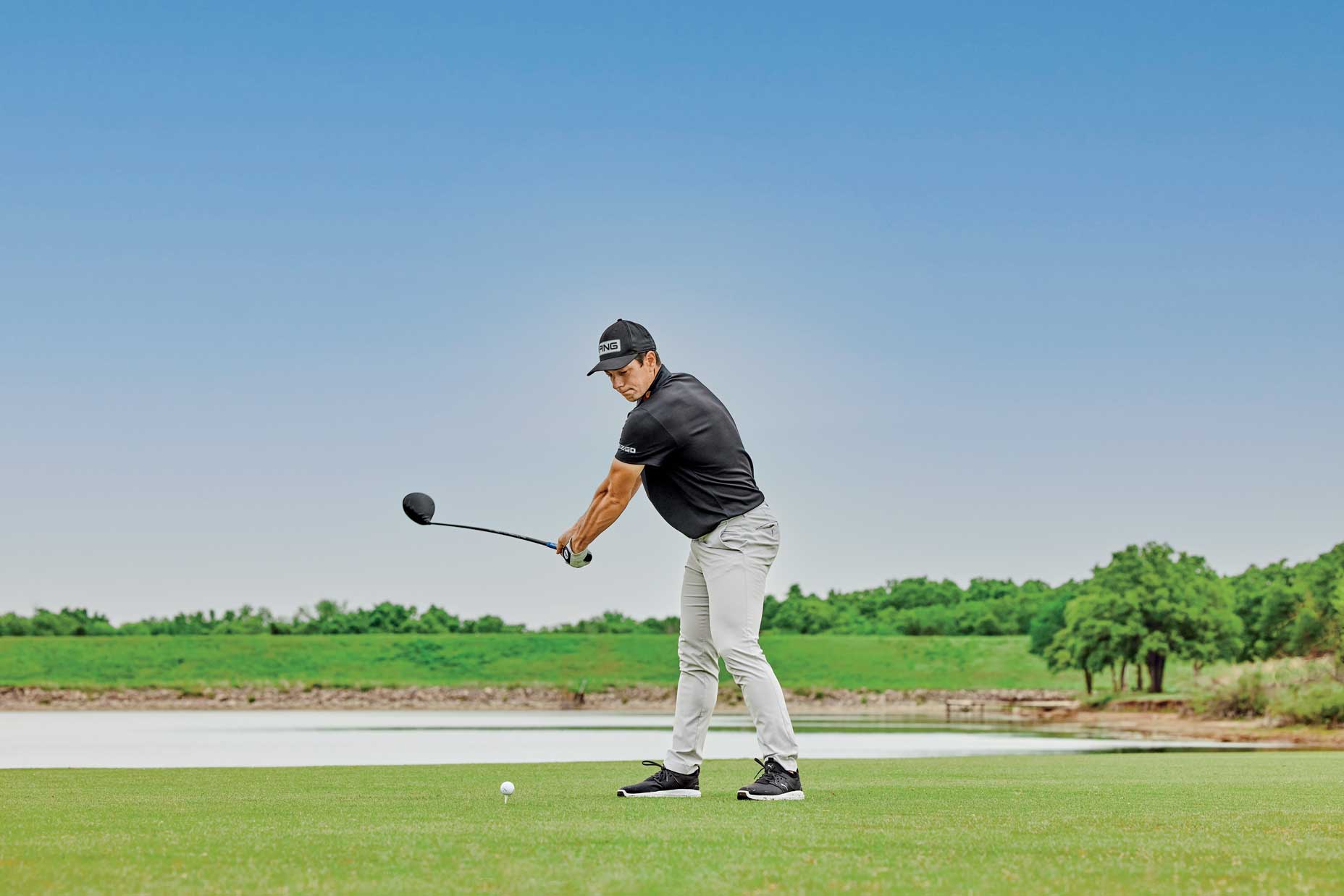
Christopher McEniry
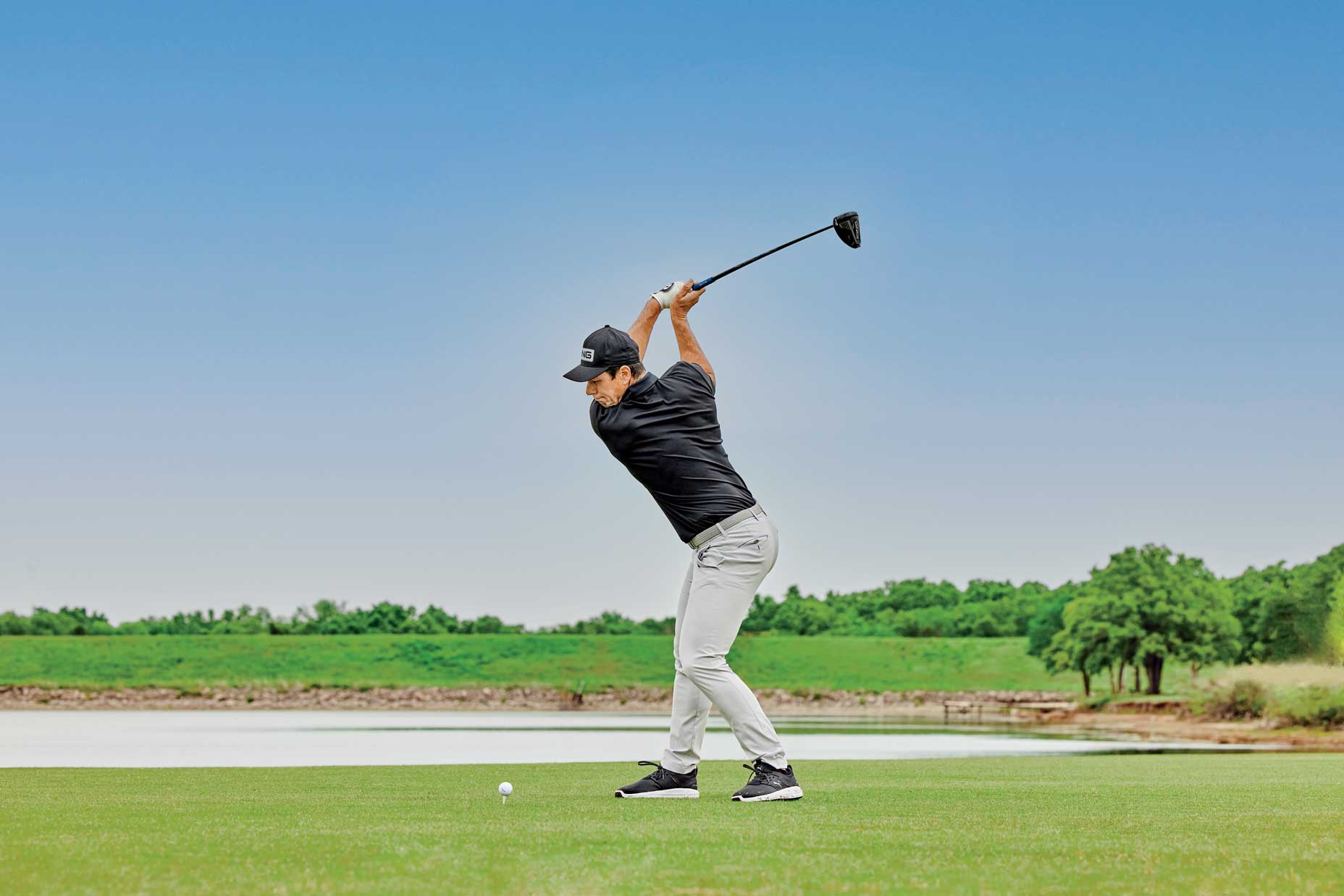
Christopher McEniry
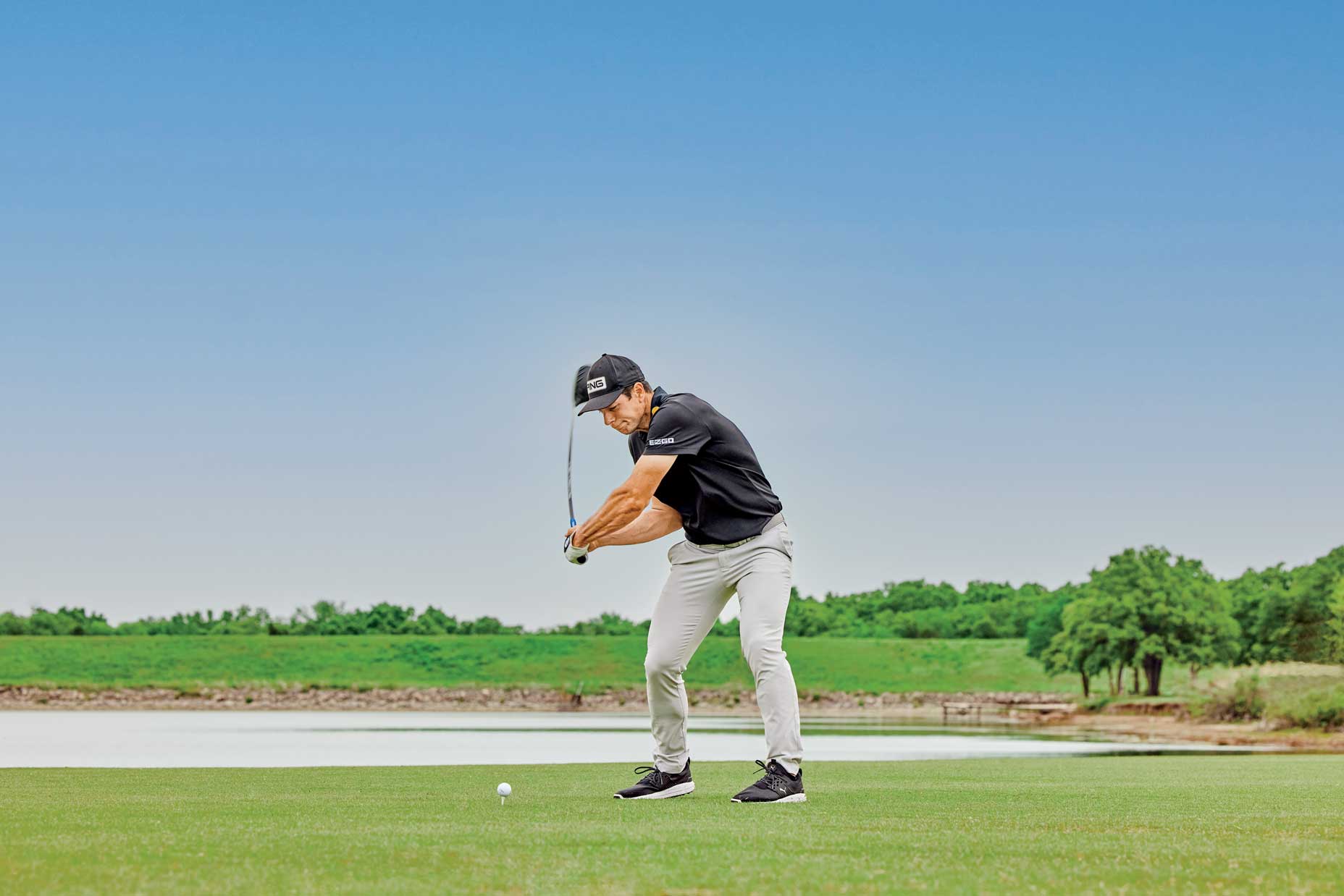
Christopher McEniry
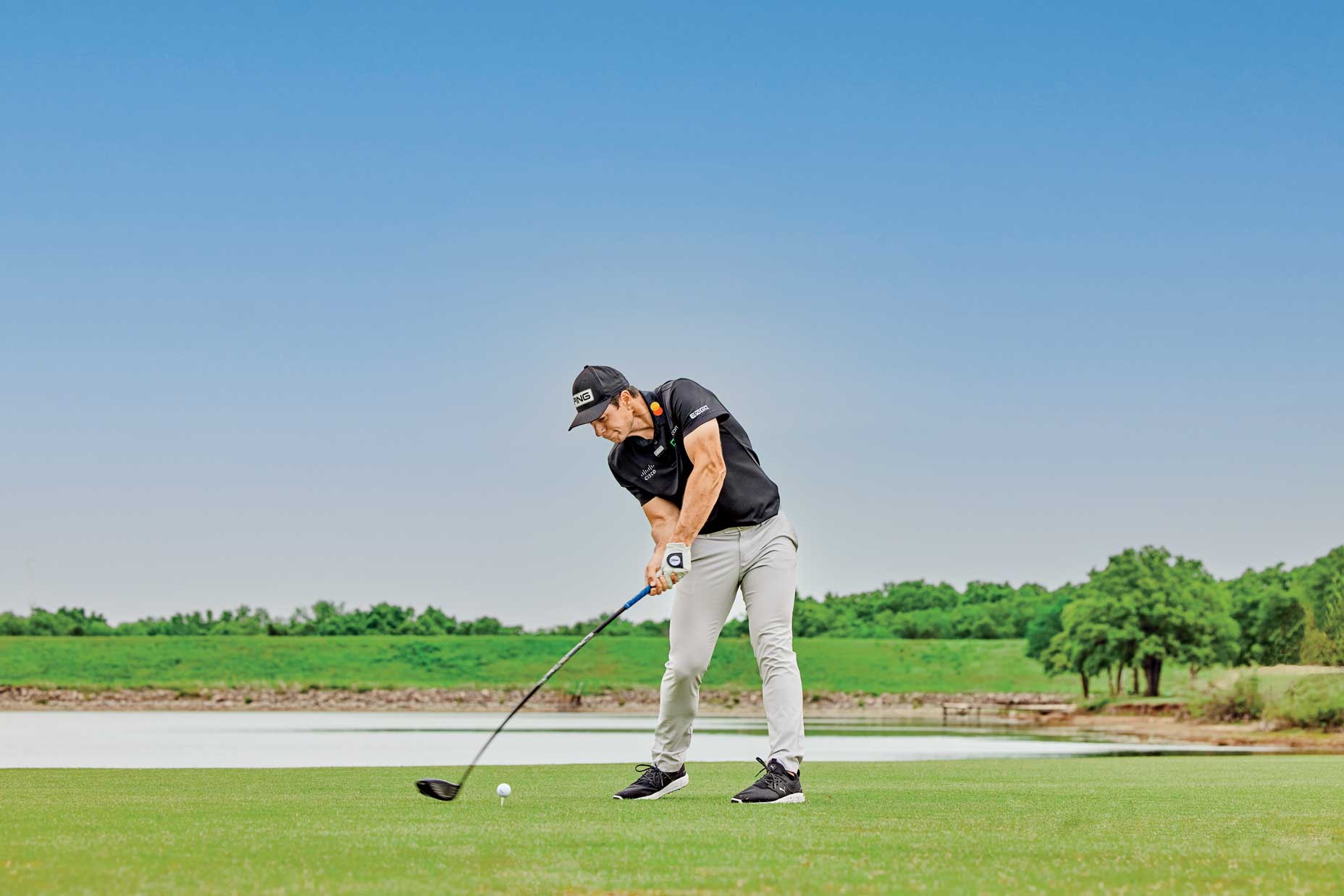
Christopher McEniry
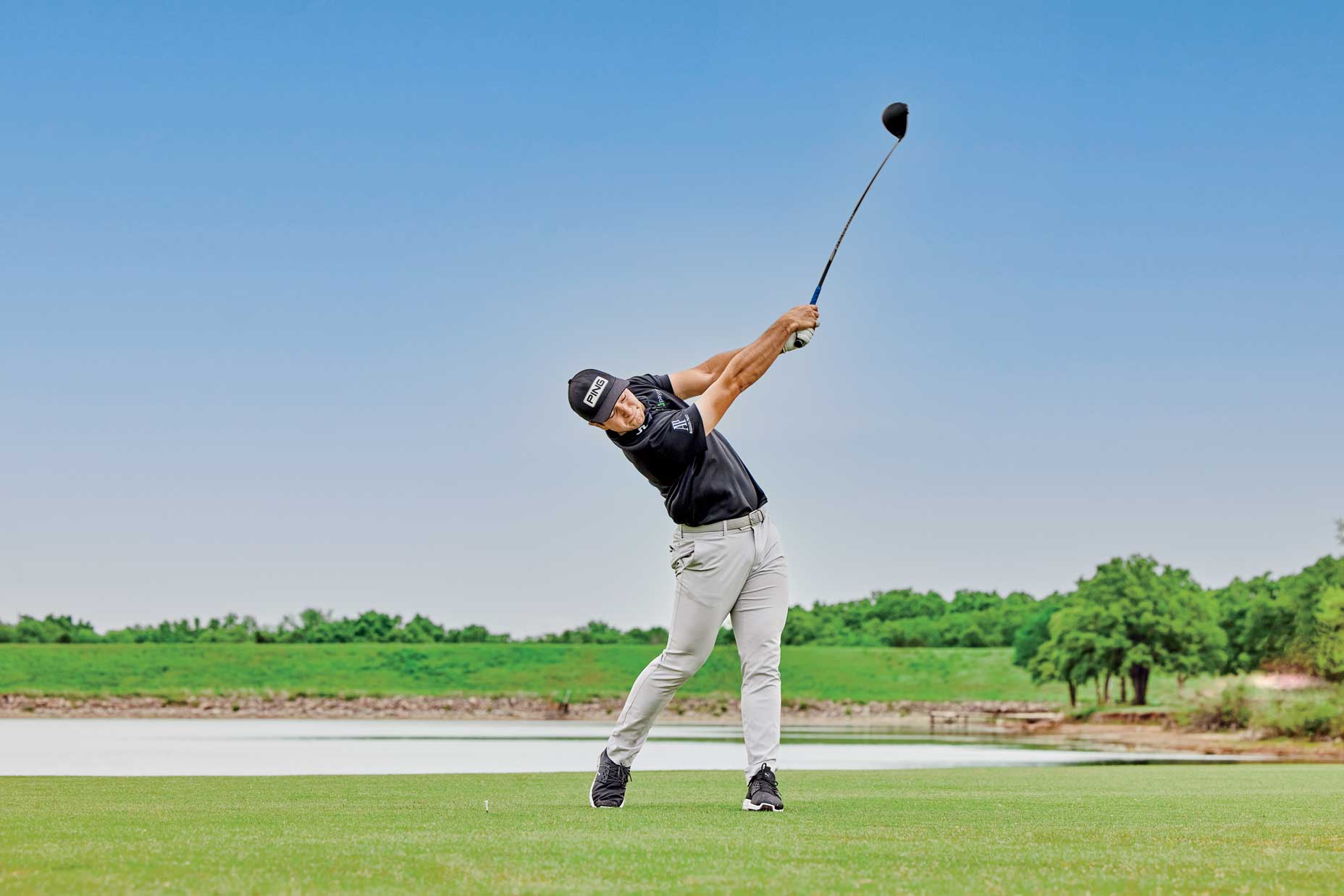
Christopher McEniry

Christopher McEniry
4. I Embrace the Cut
I mentioned harnessing one shot. For me, that’s a cut. And, when I’m playing my best golf, it almost feels like I have a wall down the left side of the fairway and I can just try to hit it as much as I can up against the wall, and it always comes off of it. One key to my driving is that I have what they call a low rate of closure. So my clubface does not go super open to super closed quickly; it stays square throughout the golf swing. That’s because of my bowed left wrist and because I have a very shut clubface.
In college, and when I first turned pro, I cut the ball a little too much for my liking. I had to try to hit a draw just to hit a little cut. But I knew it was never going to go left unless I did something stupid with my hands. What made me struggle last year, on the other hand, is that sometimes it wouldn’t cut or would even draw. If the cut is not there when I try to cut it, that’s a disaster. If it starts left and drops, that’s a disaster. And when that’s the case, what I’ve ended up doing is committing to playing the pull-draw, where I start it out right and just play a draw. That’s what I did in the Bahamas last year [at the Hero World Challenge, which he won]. I didn’t feel like I hit it that good, but I knew what was coming. And if you can predict what’s happening, you can play.
I’ve Got One Piece of Advice
Everyone wants to prove to themselves and the guys in their group that they can hit a certain shot when maybe it’s not in their probabilities. This goes on at every single level — I do the same thing myself sometimes. But take an amateur in my group.
It’s like, OK, the cover is 200 yards over water. A good 3-wood off the deck on a downslope can maybe get it there, but, likely, it will not. So you’re going to hit a pretty good shot; it’s still going to go in the water, and now you have to drop and you’ve lost two strokes.
I get doing it for the fun of it, but, if we’re trying to shoot lower scores, a better game plan would help most people.


